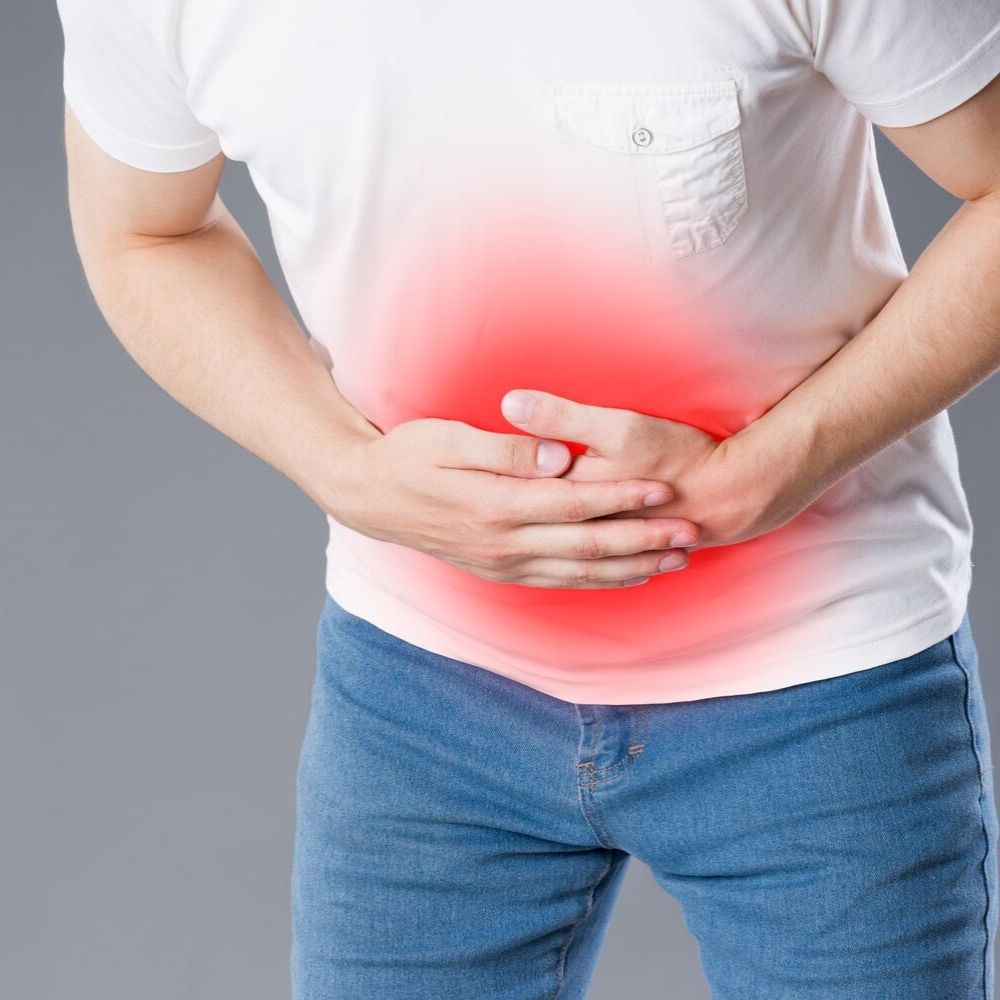What is Abdominal pain?
Abdominal pain is characterized by immense pain and discomfort on and around the abdominal area. Abdominal pain on its own is not fatal or life threatening but can be an underlying symptom of a serious illness.
What causes abdominal pain?
-
Appendicitis
-
Gastroesophageal reflux disease (GERD)
-
Urinary tract infection (UTI)
-
Crohn’s disease
-
Endometriosis
-
Kidney stones
-
Gallstones
-
Hernia
-
Pelvic inflammatory disease
-
Ulcers
-
Lactose intolerance
-
Gas
-
Food allergies
-
Food poisoning
-
Irritable bowel syndrome (IBS)
-
Menstrual cramps
-
Stomach virus
-
Constipation
-
Indigestion
What are the symptoms of Abdominal Pain?
-
Fever
-
Signs of dehydration
-
Inability to pass feces
-
Vomiting
-
Frequent urination
-
The tender sensation on the abdomen
Diagnosis of Abdominal pain
It is vital to seek medical help if you are experiencing abdominal pain. The specialist usually performs tests such as CT scan, ultrasound, X-ray, endoscopy, enemas, blood tests, urine test and stool test. The doctor will also ask questions related to the type of pain, the area where the pain persists, the intensity of the pain, the intervals at which the pain occurs, your menstruation cycle (if you are a girl), food products which you have consumed, the time span of this pain, if you are pregnant or not and recent injuries you have experienced.
Treatment for abdominal pain
Treatment usually depends on the root cause of the pain. It can range from consuming antibiotics prescribed for ulcers, GERD and inflammation. In some cases, if the abdominal pain is caused due to hernia and appendicitis, surgery can be performed. It is important to contact a doctor as soon as possible if you experience difficulty breathing, acute tenderness in and around the abdomen, swelling of the abdomen, yellowness of the eyes or skin, vomiting, persistent nausea, hematemesis (vomiting blood), high fever, loss of appetite, unexplained loss of weight, burning sensation while urinating and bloody stools.
Key Highlights
-
Treatable by medical professional
-
Usually self diagnosed
-
Lab test not required
-
Short-term: resolves within days to weeks
-
Non communicable



